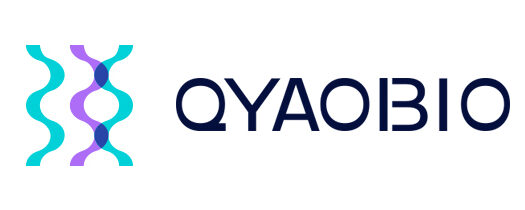Peptide Tags
Peptide tags are effective for detection or separation of tagged peptides.
Peptide tags are peptide sequence grafted onto the recombinant protein genetically. The peptide tags can be added to either terminus end of the target peptides. The fusion of peptide tags and target protein can increase the expression level, solubility, folding, purification and detection of recombinant proteins. The common peptide affinity tags have the following features:
- Purification of one-step adsorption
- Minimum effect on tertiary structure and biological activity
- Easy and specific removal for native protein
- Simple and accurate assay during purification
- Wide applicability to different proteins
Peptide tagging is a frequent strategy in life science researches, peptide tags are effective for detection or separation of tagged peptides. These tags can be small organic molecules like biotin or short peptide sequence.
Common Peptide Tags
The most common peptide tags are Flag, HA, His, Myc. These small peptide labels will not interfere with the fusion protein in the large-scale production of recombinant proteins.
Flag tag
- Molecular Weight: 1.01 kDa
- Size: 8 amino acids (DYKDDDDK). H-Asp-Tyr-Lys-Asp-Asp-Asp-Asp-Lys-OH (trifluoroacetate salt)
- Tag Location: C- or N- terminals, or internal.
- Affinity Resin: Immobilized DDDK antibodies.
- Applications: ELISA, western blot, protein purification, protein crystallization.
- Strengths: Not likely to affect the functionality of fusion protein. Contains an internal cleavage site.
- Limitations: Affinity resin is not as stable as others and can be expensive.
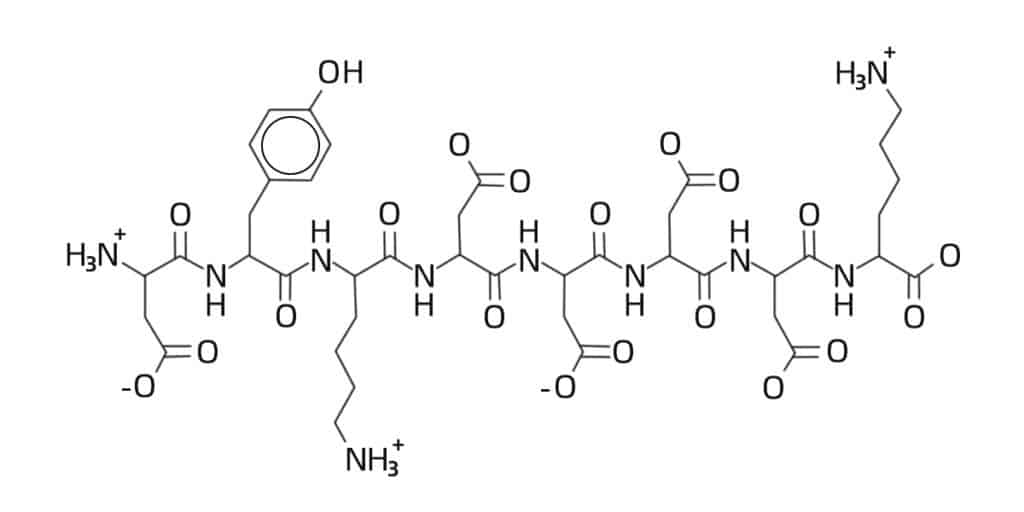
Flag tag is a common hydrophilic tag with well-characteristics, it is comprised with eight amino acids (DYKDDDDK). This flag tag is applied in conjunction with antibodies in protein pull-downs, it can be incorporated to N-, C- or internal positions of the target protein.
In addition, the flag tag is a versatile fusion tag in regard to recombinant proteins purification. As flag tag is hydrophilic with high charge, it is the most widely used epitope tag in protein structural and functional study, such as elution of immunoaffinity chromatography-purified recombinant proteins.
HA tag
- Molecular Weight: 1.1 kDa
- Size: 9 amino acids (YPYDVPDYA) H-Tyr-Pro-Tyr-Asp-Val-Pro-Asp-Tyr-Ala-OH (TFA salt)
- Tag Location: C- or N- terminals
- Affinity Resin: Anti-HA antibody immobilized onto agarose beads
- Applications: ELISA, western blot, immunoprecipitation and immunofluorescence, protein purification
- Strengths: Unlikely to affect protein functionality
- Limitations: Not recommended for use in apoptotic cells
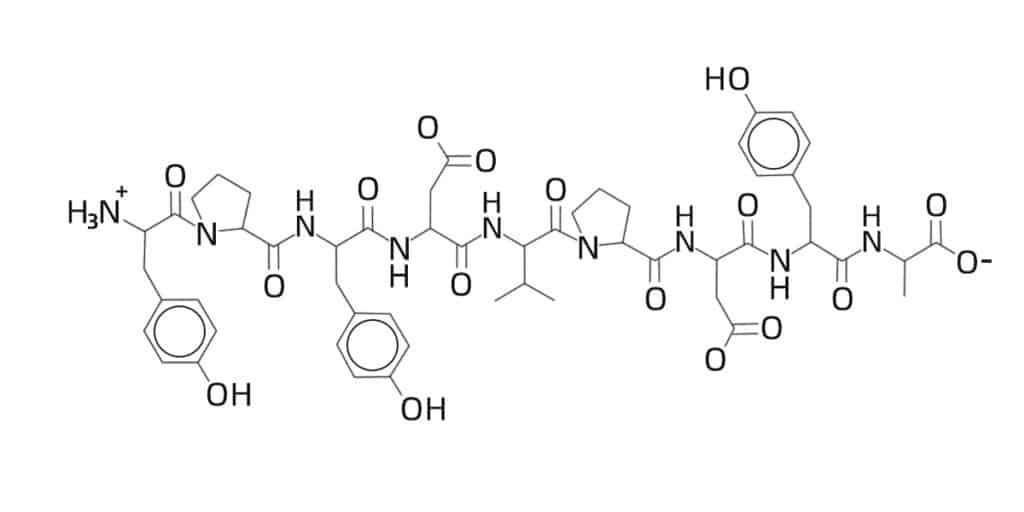
HA tag is derived from human influenza hemagglutinin (HA) molecule corresponding to amino acids 98-106, it has sequence of YPYDVPDYA. It is idea for co-IP and western blots with small interference to protein function. HA tag are applied extensively as a general epitope tag in expression vectors, such as a number of anti-rhodopsin antibodies can recognize this epitope tag.
As HA tag does not interfere with the bio-activity or bio-distribution of the recombinant proteins, many recombinant proteins are engineered to express the HA-tag. This tag can facilitate the detection, isolation, and purification of proteins. However, it is not suitable for protein detection and purification from apoptotic cells.
His Tag
- Molecular Weight: 0.2–1.6 kDa. 6x-His tag is 0.8 kDa.
- Size: 2–10 histidine residues His-His-His-His-His-His
- Tag location: C- or N- terminals, or internal.
- Affinity Resin: transition metal ions, usually Ni2+
- Applications: protein purification
- Strengths: Small size so lower possibility of affecting fusion protein functionality. Doesn’t cause inclusion bodies.
- Limitations: Can have significant background binding in mammalian and insect cells
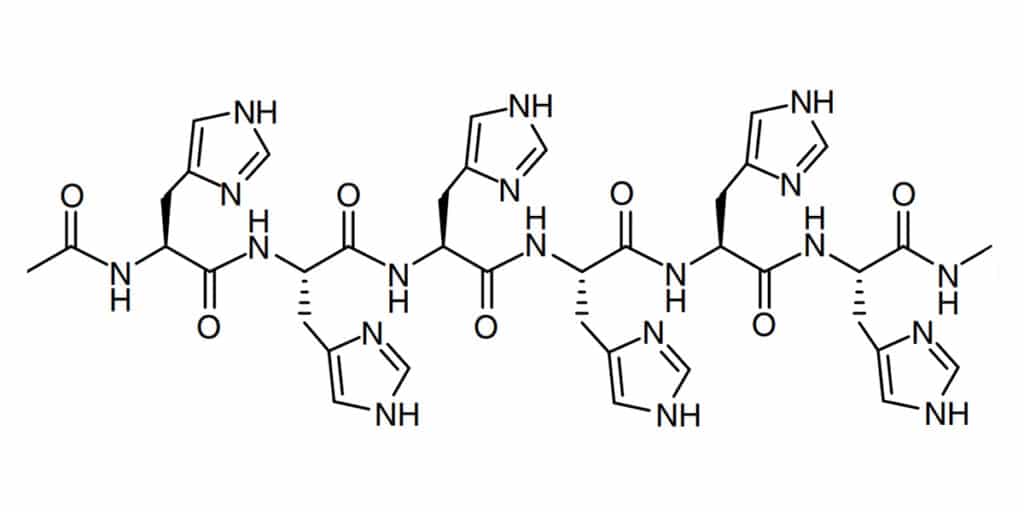
His tag is the most common affinity tag for protein purification, its sequence is HHHHHH. It is also known as polyhistidine-tag, hexa histidine-tag, 6xHis-tag, His6 tag. As an amino acid motif with at least six histidine (His) residues, it normally exists at the N- or C-terminus of proteins. This tag is often applied for affinity purification of genetically modified proteins. His purification tag combines with the metal chelate affinity chromatography, in order to provide a powerful tool for the separation and purification of recombinant proteins.
Myc Tag
- Molecular Weight: 1.2 kDa
- Size: 10 amino acids (EQKLISEEDL) H-GLU-GLN-LYS-LEU-ILE-SER-GLU-GLU-ASP-LEU-OH
- Tag location: C- or N- terminals
- Applications: Western blot, immunoprecipitation, flow cytometry. Can be used in affinity purification.
- Affinity Resin: divinyl sulphone-activated agarose
- Strengths: Can be placed at either N- or C-terminal. c-myc tagged proteins can be crystallized successfully.
- Limitations: Elution for affinity chromatography is at low pH, which could affect fusion protein functionality.
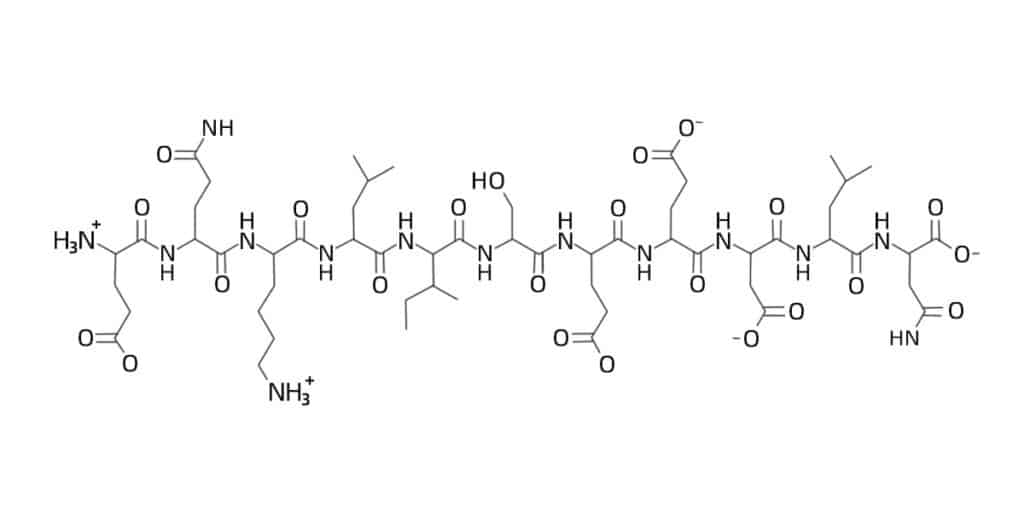
Myc tag is a small immuno-reactive tag with sequence of EQKLISEEDL, it can be placed at either N- or C- terminus. However, it is advisable not to fuse myc-tag directly behind the signal peptide, as it will interfere with translocation of the secretory pathway. Myc tag is the popular epitope tag for expression detecting of recombinant proteins in bacteria, insect, yeast, and mammalian cell system. It can be used in different assays with recognition by antibodies, such as cellulite detection by Western blotting.
Epitope Peptide Tags
Epitope tags are short peptide sequences, which are fused onto proteins and applied frequently in antibody-based assays. Normally, epitope tags are shorter than affinity tags in length, and less likely to affect protein function. The common epitope tags including C-Myc tag, HA tag.
Due to specificity for respective primary antibodies, epitope tags are an efficient tool in detection of fusion proteins. Epitope tags are applied widely in cell culture and immuno-precipitation.
Qyaobio has extensive experience in the synthesis of peptide-tagged fusion peptide and protein. We can apply various markers to the synthesis process of tagged peptides. If necessary, we also can apply spacers or linkers to separate tags from peptides.
Call Us
+86(021)-50795728
+86(027)-60707970
